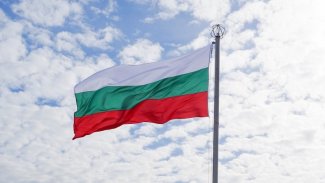Bulgaria: a Russian spy network has been dismantled

On 18 March Bulgaria’s counterintelligence arrested a group of six Bulgarians suspected of spying for Russia. According to the Prosecutor’s Office, five out of the six arrested are former or active servicemen, including officers of the military intelligence (Military Information Service) accountable to the Bulgarian Ministry of Defence. The Bulgarian law enforcement bodies decided to place five of the arrested people in pre-trial detention. The sixth person, who confessed to the charges he was accused of, was released on bail.
The group was led by Ivan Iliev, a longtime employee of the military intelligence, who underwent training organised by Russia’s GRU under communism. After 1989 he held managerial positions in Bulgaria’s military intelligence and, having retired, ran courses for military intelligence personnel. His wife, who holds dual citizenship (Bulgarian and Russian), served as a liaison with Russian Embassy personnel. Among the other members of the network there were two former and two active servicemen, including the current deputy budget planning and management director in the Bulgarian Ministry of Defence and an officer who participated in expeditionary missions and held the position of military attaché several times.
The arrested members of the group are said to have been delivering information about issues such as: the US-Bulgarian Maritime Coordination Centre (established in Varna in July 2020); the modernisation of the Bulgarian Armed Forces; activity of NATO in various parts of the world; the EU’s and NATO’s policy on Russia, Belarus and Ukraine; the activity of the US and CIA in Bulgaria; and the actions taken by the NATO Communications and Information Agency (NCIA). According to statements from the Prosecutor’s Office, the members of the network received US$ 2,000-3,000 for passing the information. It is said that the group has been under surveillance since September 2020.
The Bulgarian prime minister, Boyko Borisov, commended the operations of Bulgaria’s counterintelligence and called upon Russia to stop espionage in Bulgaria. On 22 March the Bulgarian government announced that the First and Second Secretaries at the Russian Embassy had been expelled from the country in relation to the espionage case. Representatives of the US State Department, NATO and the UK foreign minister have pledged their support for the measures undertaken by Bulgaria. The Russian Embassy in Sofia treated this spy scandal as yet another attempt to ‘demonise Russia’ and to damage relations between the two countries.
Commentary
- The operation of Bulgaria’s counterintelligence can be seen as part of actions which have been pursued since autumn 2019 and which by December 2020 had resulted in the expulsion of six Russian diplomats (among them a military attaché) on charges of espionage. It is likely that the arrests made on 18 March are directly linked to the case of two Russians from the Trade Department of the Russian Embassy who were recognised as spies in September 2020. They were accused of collecting intelligence, through contacts, on the modernisation of the Bulgarian Armed Forces and the situation in the arms industry. The dismantling of the spy ring is also most likely a consequence of the pressure from the US, which is seeking to limit the possibilities of Russia running intelligence operations in Bulgaria. It is particularly important in the context of the ‘DEFENDER-Europe 21’ exercise, organised by NATO and the US, which will mostly be held in South-Eastern Europe, including in Bulgaria.
- The uncovering of the spy ring indicates that Russia’s espionage activity is becoming a convenient topic of the political game ahead of the parliamentary election planned for 4 April this year and the presidential election scheduled for the end of the year. Prime Minister Boyko Borisov will use the arrests as evidence that he is attending to the country’s strategic interests and taking an assertive stance towards Russia. During the election campaign accusations appeared that his centre-right party, Citizens for European Development of Bulgaria (GERB), was favourable to Russian interests in the region, for instance by supporting the construction of the Bulgarian section of the TurkStream gas pipeline. Borisov himself attacked President Rumen Radev, who is backed by the opposition Bulgarian Socialist Party (BSP), reproaching him for remaining silent as the Bulgarian law enforcement forces uncover further cases of Russian espionage.




